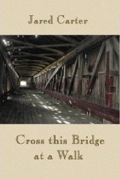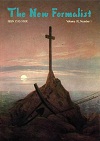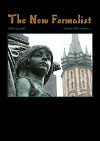Classical Clerihew
Zeus
was a goose
to think that Leda would be turned on
by a swan.
(First published in "Light Year ’86.")
The High Priest’s Servant
I heard his words and fell back with the rest
As if his breath had conjured a great wind
Against the beating heart within my chest.
I got up slowly. I no longer grinned
The way I had before I heard him speak
As if his breath had conjured a great wind.
Then his own servant struck. I gave a shriek
Of pain and of relief, for I could feel
The way I had before I heard him speak.
Why did he then extend his hand to heal
The wound I had accepted as a gift
Of pain and of relief? For I could feel
The sheltering pain no more, nor could I lift
My most effective shield against that man:
The wound I had accepted as a gift.
Cursing misplaced compassion that could ban
My most effective shield against that man,
I heard his words and fell back with the rest
Against the beating heart within my chest.
(First published in "Theology Today," January 1987.)
War Among the Clowns
The sad ones are the ones who have no bluff
To call, the clowns who never need to paint
Their faces nor to make ridiculous
The way they walk, the way they fall and bleed.
The laughter eats at them far more than us
Mere dabblers in the fine art of complaint,
Whose very cries are comforting enough,
Whose anguish is sufficient consolation.
And yet we envy them—for they succeed
Where all our careful efforts always fail:
They suffer and, in suffering, are real,
While we present, at best, an imitation
Of what our hearts will never truly feel.
The sad ones, when at last they lose, prevail.
(First published in "The Lyric," 1994.)
Color Me Sorrowful
(for Cate Harmon)
Old Blue Eyes died, and, oh, my brown eyes bled
The richest tears a headline ever drew
With pointed words! The dark day forged ahead,
But I stood dully still and only knew
That even my red heart was turning blue.
I have turned forty. It is no good year.
We sometimes do things our way, it is true,
But it’s the same insistent fate we fear.
The death of the celebrity made clear
That the voice in my skull would also die,
That things that we unwittingly hold dear
Pass faster than a song—indeed, a sigh.
I smiled at others, then I wept alone.
The news was blue, the world as white as bone.
published in "Riverrun," Summer 1999, and dedicated to Cate Brumley, who has since married.)
The Inner Novelist
Nowadays it is novels people write.
I wrote one once and burned it—in my heart,
That is: the manuscript, though not in sight,
Still exists somewhere, charged with sweat, not art.
Sometimes when my self-knowledge comes apart
In sundry states of crippled consciousness,
I plan to write another one. Get smart,
My lad, and have the courage to confess
That novels aren’t within your purview. Less
And less are you a creature of your age,
A writer who can dare hope for success
In any larger context than a page.
Sonnets are what you write when you succeed:
If only they were something people read!



